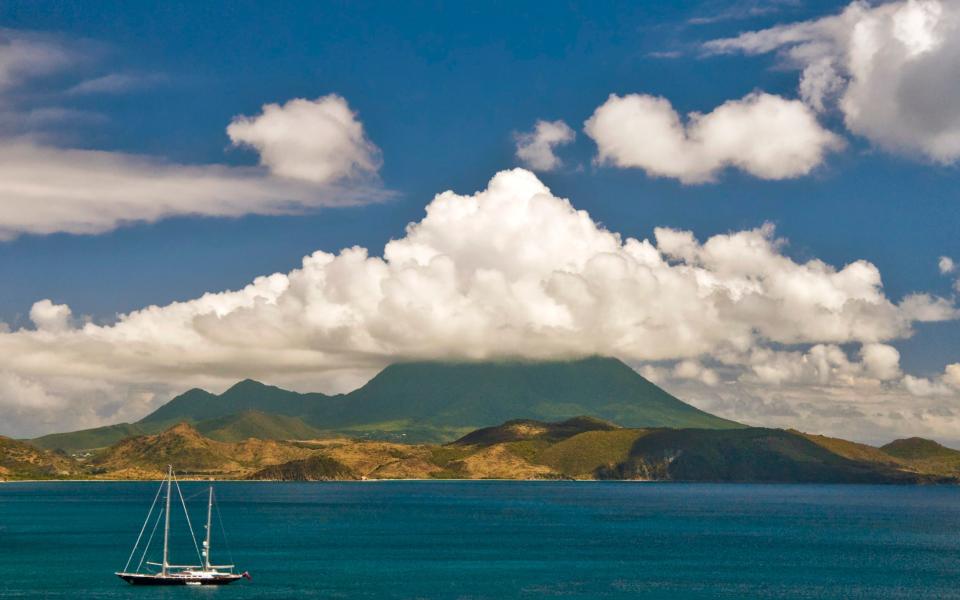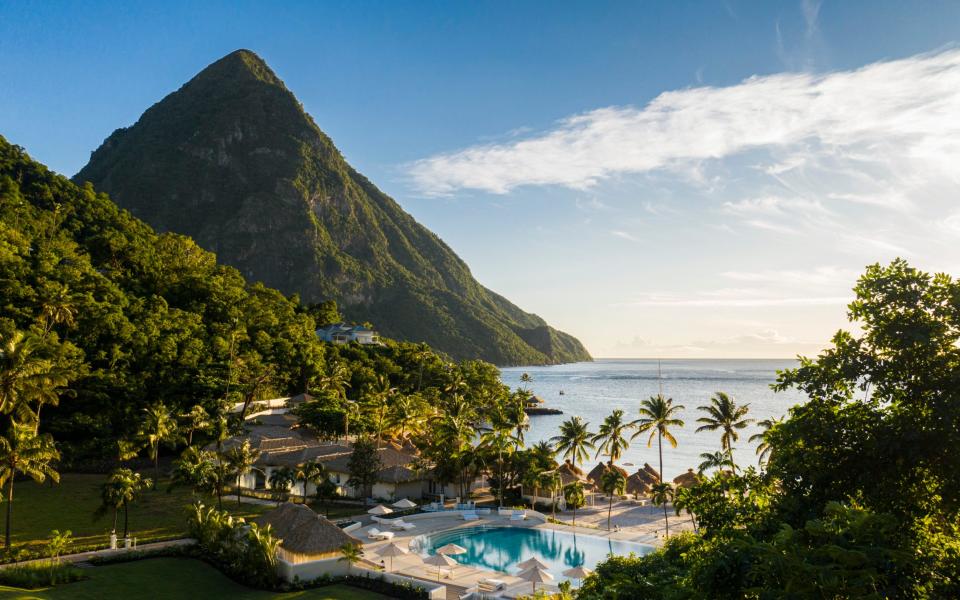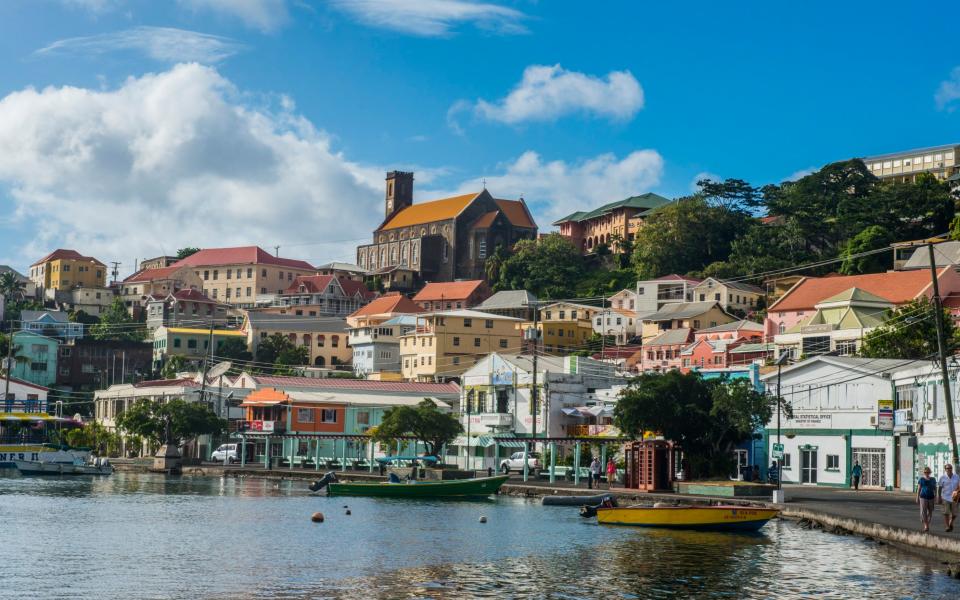The Caribbean has long been an attractive destination for the wealthy because of its constant sunshine, clear blue seas and favourable tax regime, but citizenship on the islands is becoming increasingly difficult to obtain.
The minimum investment required to obtain Caribbean citizenship was doubled to $200,000 (£157,990) at the beginning of July.
The change is part of broader plans by the Caribbean islands to attract high-net-worth individuals who are serious about investing in the country.
It is also intended to address concerns in the European Union that the relatively low cost of citizenship makes it too easy for criminals to launder money or for nationals such as Chinese or Russians to obtain passports for visa-free travel to the continent.
Joe Rice, of investment immigration consultancy Global Citizen Solutions, said: “The islands want a certain type of investor. They want to attract someone who is not just investing to get a second passport, but also investing in the country itself, hopefully moving, starting a business and creating jobs.”
There are five islands that offer Citizenship by Investment (CBI) passport programs: Antigua and Barbuda, Dominica, Grenada, St. Kitts and Nevis, and St. Lucia.
If you want to invest in Caribbean citizenship, here’s what you need to know.
Why is Caribbean citizenship attractive?
One of the biggest attractions of Caribbean citizenship is that it allows visa-free travel to some countries.
This can be useful if you are travelling internationally for business purposes, and also for Brits who want easy access to the European Union and Asia.
All five passport arrangements provide visa-free access to over 140 countries, including EU countries as well as the UK, Singapore and Hong Kong.
The St Kitts and Nevis passport is ranked 55th for mobility in the Global Passport Index, the highest of five programs among the Caribbean islands, providing access to 196 countries worldwide.


There are also many tax advantages to being a Caribbean citizen. You don’t have to pay tax on capital gains you make in the Caribbean, there is no inheritance tax, and some islands, such as Antigua and Barbuda and St Kitts and Nevis, have no income tax.
Even if you do have to pay tax as a citizen of one of the islands, it may be lower than the tax you would pay if you lived in the UK, as tax rates range from 10% to 35%.
How to get Caribbean citizenship
The CBI scheme was launched in 1983. There are several different ways to obtain a Caribbean passport.
You can donate to an approved government project, usually in the form of a bond, or invest in real estate or businesses. The scheme you can invest in will depend on the candidate you choose.
Armand Arton, CEO of immigration consultancy Arton Capital, said: “Many islands offer dedicated funds designed to optimise where capital is spent for Caribbean nationals.
“Investors want to know that their money is going to the right place and making a positive impact on society.”
For example, St Kitts and Nevis has a sustainable island nation contribution fund that wealthy individuals can donate to, supporting increased food production and the development of the creative economy. Alternatively, if you want to support real estate, there are a number of approved developments.
Mr Rice added that the real estate route provides a share in a luxury resort or hotel, but there may be limits on how often you can stay.
“You might only be there for a week or two a year depending on the development, so if you’re thinking of moving it might not be the best option,” he said.
If you buy a home, there may also be limits on how long you have to wait to sell. For example, a property purchased under the private home sale investment option in St Kitts and Nevis cannot be resold for seven years.
How does the process work?
You can’t just show up on a Caribbean island with a suitcase full of $250,000 in cash. Investment applications must be made through approved agencies such as Global Citizen Solutions and Arton Capital.
Mr Rice said this industry was open to scammers and it was important to do your due diligence and check for evidence that the agent was operating in the Caribbean.
Each island’s own government website usually lists approved agencies.
The agency will assist with know-your-customer and anti-money laundering checks.
Mr Arton added: “The purpose of this is to ensure that the Caribbean does not welcome malicious actors and that these schemes continue to be a force for good.”


In addition to your identification documents, you will also need to provide documentation showing the source of your wealth.
The agency can help you decide on the best candidate and plan for your needs and submit your application. This will be reviewed by the country’s CBI unit and the entire process will usually take between three and nine months to complete.
Once the application is approved in principle, the client is asked to make the necessary investment in the form of real estate, establishing a company or donating to a state fund.
Unlike residency programs in some European countries, there is no obligation to stay on the island, but it can help gain access to better tax rates.
As well as the minimum investment amount, there will also be agency fees to pay for the application and due diligence, administrative costs and the cost of the passport itself, which can also increase costs.
For example, on a property purchase in St Lucia, there is a government fee of $30,000 for a single applicant or $45,000 if bringing a spouse. There is then a due diligence fee of $8,000 for the first applicant and $5,000 for additional family members, and it costs $500 per passport.
That’s around $60,000 for a couple, in addition to just the management costs, any agency fees, and the minimum investment.
Best places to invest
It depends on what you are looking for.
According to research by Caribbean real estate brokerage firm The Agency, Grenada is among the most affordable places to buy real estate, with property prices per square metre typically around $2,000.


With a square meter price of $5,600, Antigua and Barbuda is among the most expensive islands.
“With so many different investment options available, the best destination is often determined by the investor’s personal preferences,” Arton said.
“Owning a highly sought-after second home in paradise is one of the main reasons people invest.”
Property options range from more affordable homes for half a million dollars to exclusive getaways for the ultra-rich with fortunes of up to $50 million.
“While many of these properties are out of reach for most people, there is a significantly higher percentage of homes offered at a lower price point, so investors are spoilt for choice when choosing their second home,” he added.
Caribbean yields
Brokerage firms say that returns are not the main reason for investing.
In some cases, such as when you support government programs, you may not receive any financial reward, but the real reward is citizenship.
Mr Arton said: “Many investors feel this is worth much more than any financial return because it gives them and their children the ability to live and work visa-free.”
The expert, who stated that the average real estate investment return is around 5-10%, said, “The return is more of a bonus than the ultimate goal. The real incentive for investment is Caribbean citizenship.”